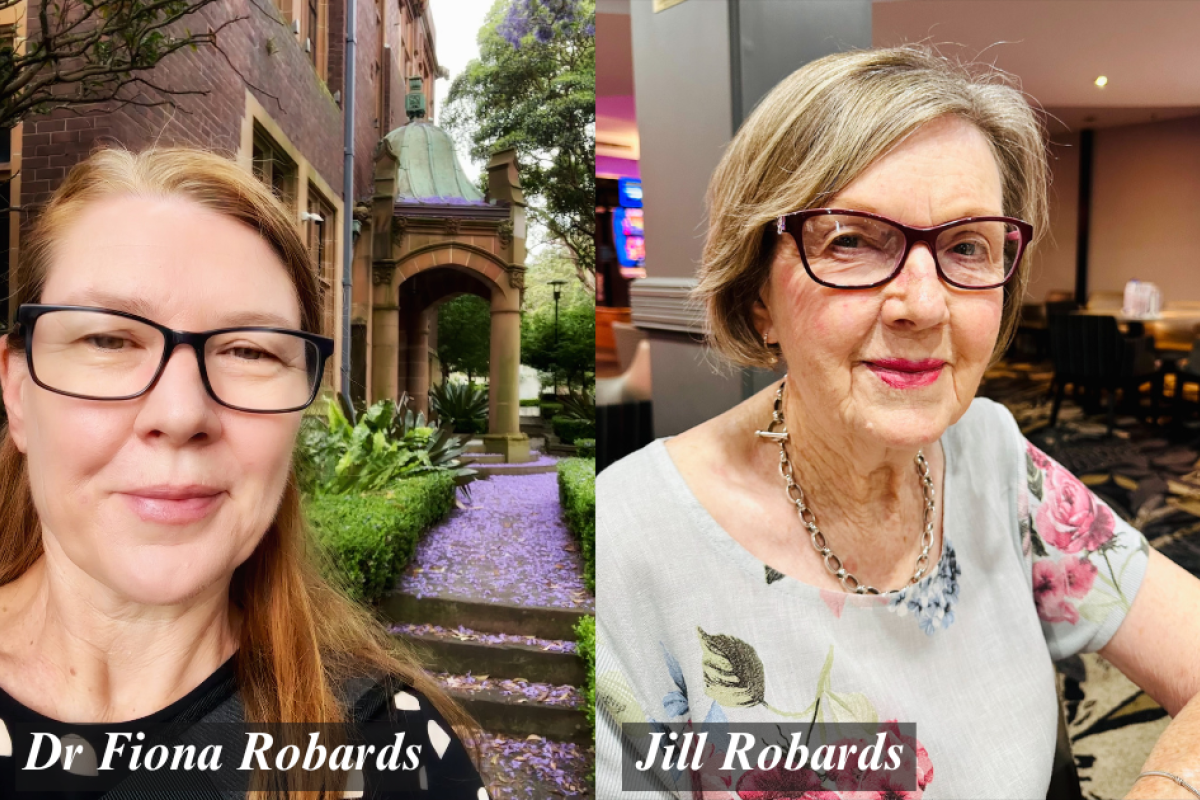General News
9 February, 2025
Dr Fiona Robards is off to Geneva!
A Sydney academic who grew up in Nevertire has embarked on the professional adventure of a lifetime, heading off to complete a three-month sabbatical in the cosmopolitan metropolis of Geneva, Switzerland.

Dr Fiona Robards, a public health academic at the University of Sydney, left Australia in February to spend several months with the renowned World Federation of Public Health Associations (WFPHA) in Geneva, where she will focus on enhancing policies for women, children, and youth.
The daughter of Jill and Ron Robards of Nevertire, the 55-year-old academic co-chairs the WFPHA’s Women, Children and Youth Health Working Group with Boston University Adjunct Professor Deborah Walker.
During her time in Geneva with WFPHA, Dr Robards will lead policy development, attend the annual General Assembly, and conduct three research projects. She is also very excited to have been invited to attend the World Health Organisation’s executive board meeting, which will be held in the first week of February.
Sabbatical = service
Dr Robards said her Swiss sabbatical is her contribution to “service”, which is one part of her work at the University of Sydney, where she has lectured since 2015 and is currently a senior lecturer in public health, as well as a health equity, prevention and public health advocate.
“Service can be for the university, or it can be for the broader discipline that you work in,” Dr Robards explained.
“My discipline is youth health, and some of my service to the community is international policy work.”
With 139 member associations representing five million public health professionals in 104 countries, the Geneva-based WFPHA has been operating since 1967 and influences international health policy.
Regarded as the only worldwide professional international public health authority, the WFPHA develops and implements public policy resolutions and other advocacy initiatives, with a special focus on the Global Charter for the Public’s Health, according to the organisation’s website.
Last year Dr Robards led the development of a policy on children and young people’s health and rights ensuring that children and young people have access to healthcare, education, and protection from abuse. The policy, which was subsequently endorsed by the WFPHA, emphasises:
● universal health coverage that is affordable and provides quality care for young people.
● improving education and awareness by promoting health education to empower youth.
● strengthening legal frameworks to safeguard children from violence and exploitation.
While overseas, Dr Robards will also present on this policy at a conference in Lisbon, Portugal.
From Nevertire to academia
Dr Robards’ journey began in Nevertire, as the eldest daughter of Jill and Ron Robards, and sister to Penny, an IT consultant. Mr and Mrs Robards are very proud of both their daughters’ career achievements, and are thrilled to hear of their eldest’s approaching Swiss sabbatical on the southern shores of the beautiful Lac Léman (Lake Geneva).
“Fiona has always been a very diligent student and done extremely well, and is a very honest, ethical person,” Jill Robards said.
“We are extremely proud of her achievements,” she added.
Her mother said Dr Robards showed early academic promise as a young child in Nevertire. She attended primary school locally at a facility that sadly no longer exists, and then completed high school at what is now known as Scots All Saints College, Bathurst.
Jill Robards acknowledges that her own extensive work in nursing and child health and welfare may have had an influence on Dr Robards’ ultimate career path.
“I started as a psychologist, working with children and families, and then managed youth health services for homeless young people, and worked in policy, mainly for NSW Health, leading youth health policy,” Dr Robards said.
Moving into academia, with four Masters degrees in public health, health management, art therapy and psychology under her belt, and a PhD focusing on how marginalised young people navigate the Australian health system, Dr Robards now focuses on young people's health.
Dr Robards caught up with her parents earlier this month during a rare trip “home” to the region.
Difficult world for youth
We asked Dr Robards if navigating the world today is difficult for young people, as a number of governments, including several within Australia, are toughening laws and reducing the age of culpability for criminal acts by young people.
“I think there are some success stories, some areas where we're doing better,” she said.
“For example, young people's drinking of alcohol is reducing, and that almost seems surprising, given increasing availability [of alcohol] through online sales, home deliveries and online marketing which targets young people, [so] you expect them to have greater access to alcohol,” she added.
“It seems to be improving, and they are generally having safe sex and seeing GPs when they need to, although that could improve.
“But then, there are pockets where the rates are becoming a lot worse, particularly in mental health. So we're not doing well there.
Youth justice is one area in which Australia is performing poorly, particularly in supporting youth with disability, Dr Robards said.
“I think particularly youth justice is an area where Australia is performing very poorly, and the age of criminal responsibility being way lower than international standards is one of the things that's contributing to that,” Dr Robards said.
“One of the big issues is there's very high rates of young people with disabilities in the youth justice system, and there's not really good screening or identification or support for those young people,” she added.
Dr Robards quoted a study in Western Australia that found that 90 per cent of 100 young people assessed in the youth justice system there were found to have a neurodevelopmental disability. Some 30 of these had foetal alcohol spectrum disorder, a lifelong disability caused by exposure to alcohol in utero.
“Those sorts of things are not even recognised or well supported, so there's a lot of room for improvement, especially in terms of youth justice,” she added.


